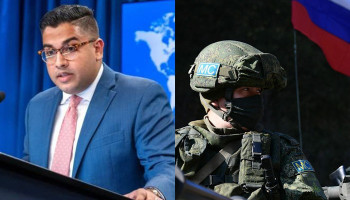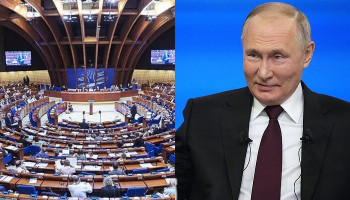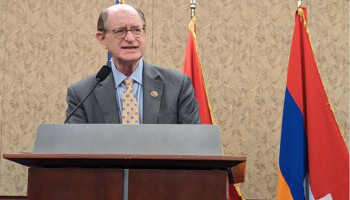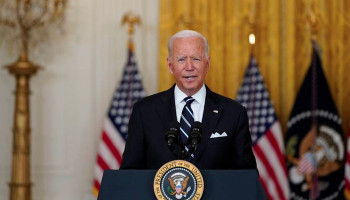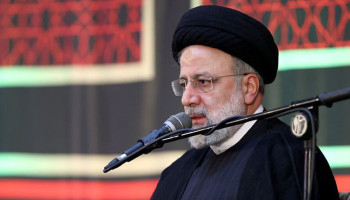Watch Out for Putin, Senators Warn Trump
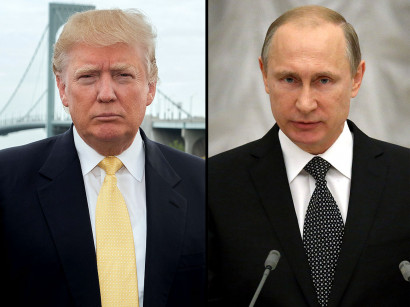 Two senior Senate Republicans are warning Donald Trump against cozying up to Moscow as lawmakers from both political parties voice alarm about potential consequences of the president-elect’s foreign-policy moves. Republicans and Democrats alike are struggling to assess Mr. Trump’s apparent policy priorities, from improving U.S. relations with Russia to rethinking participation in the North Atlantic Treaty Organization. Sen. John McCain (R., Ariz.), Senate Armed Services Committee chairman, warned Tuesday against rapprochement with Moscow after what appeared to be an amicable Monday phone call between Mr. Trump and Russian President Vladimir Putin, based on accounts from the president-elect’s office and the Kremlin. “At the very least, the price of another ‘reset’ would be complicity in Putin and Assad’s butchery of the Syrian people,” Mr. McCain said, referring to Syria’s president, Bashar al-Assad. “That is an unacceptable price for a great nation.” Sen. Lindsey Graham (R., S.C.), chairman of a Senate Appropriations Committee foreign operations subpanel, said Tuesday he disagreed with Mr. Trump’s views about Moscow and feared that Mr. Putin would take advantage while Mr. Trump is figuring out his policy, including by cementing Kremlin influence in Ukraine after seizing the Crimea region in 2014. “I worry about Russia,” Mr. Graham said. “They’re a bad actor in the world. They need to be reined in. We need not concede Crimea.” At a meeting with reporters at the Capitol, he added: “I fear that if we don’t let them know the rules of the road pretty early, then they go deeper into western Ukraine. I worry about what they are trying to do to lock Assad into power.” Mr. Graham said Republicans can’t allow Russian cyberattacks that appeared to interfere with the U.S. election “go unanswered because it may have been beneficial to our cause for the moment.” He said he wants to convene a hearing to examine Moscow’s activities in Eastern Europe, Syria and its cyber activities related to the U.S. election. President Barack Obama initially pursued a “reset” with Russia, in between Mr. Putin’s stints as president. Relations soured following the crisis in Ukraine, Moscow’s expanded military support to Mr. Assad in Syria, and what U.S. officials have called Russian interference in the U.S. election. Mr. Trump said during his campaign that he’d reconsider U.S. defense of NATO allies if they didn’t pay their fair share. Only five of NATO’s 28 members contribute the 2% of GDP to national defense that the alliance requires, although defense spending by most has risen. Mr. McCain, long a critic of Russia and a supporter of providing lethal arms to Ukraine, said Mr. Trump shouldn’t trust Mr. Putin’s calls for a thaw. “We should place as much faith in such statements as any other made by a former KGB agent who has plunged his country into tyranny, murdered his political opponents, invaded his neighbors, threatened America’s allies, and attempted to undermine America’s elections,” he said. Sen. Mitch McConnell (R., Ky.), the Senate majority leader, said he wouldn’t support a shift away from the U.S.’s strong support to NATO allies. “The NATO alliance is every bit as important today as it ever was,” Mr. McConnell told reporters last week. “You attack any member of NATO, you have us to deal with. I want the Russians to understand that fully.” Some Republicans said they viewed Mr. Trump’s NATO comments as warnings designed to pressure other nations to pay more. “I understand that as a negotiating tactic and I suspect it will be a fairly successful negotiating tactic in getting Europe as well as Japan and Korea to pay their share,” said House Foreign Affairs Committee Chairman Ed Royce (R., Calif.). Democrats have said Mr. Trump’s ability to conduct foreign policy is one of their top concerns. “Seventy percent of the sleep that I’ve lost since Tuesday night is over thinking about Trump’s foreign policy,” said Sen. Chris Murphy (D., Conn.) in an interview. “We can build some bridges with him and then we can also stop some of the more radical ideas on domestic policy, but the checks and balances don’t work as well on foreign policy. He’s got latitude on sanctions policy, non-treaty agreements.” |











